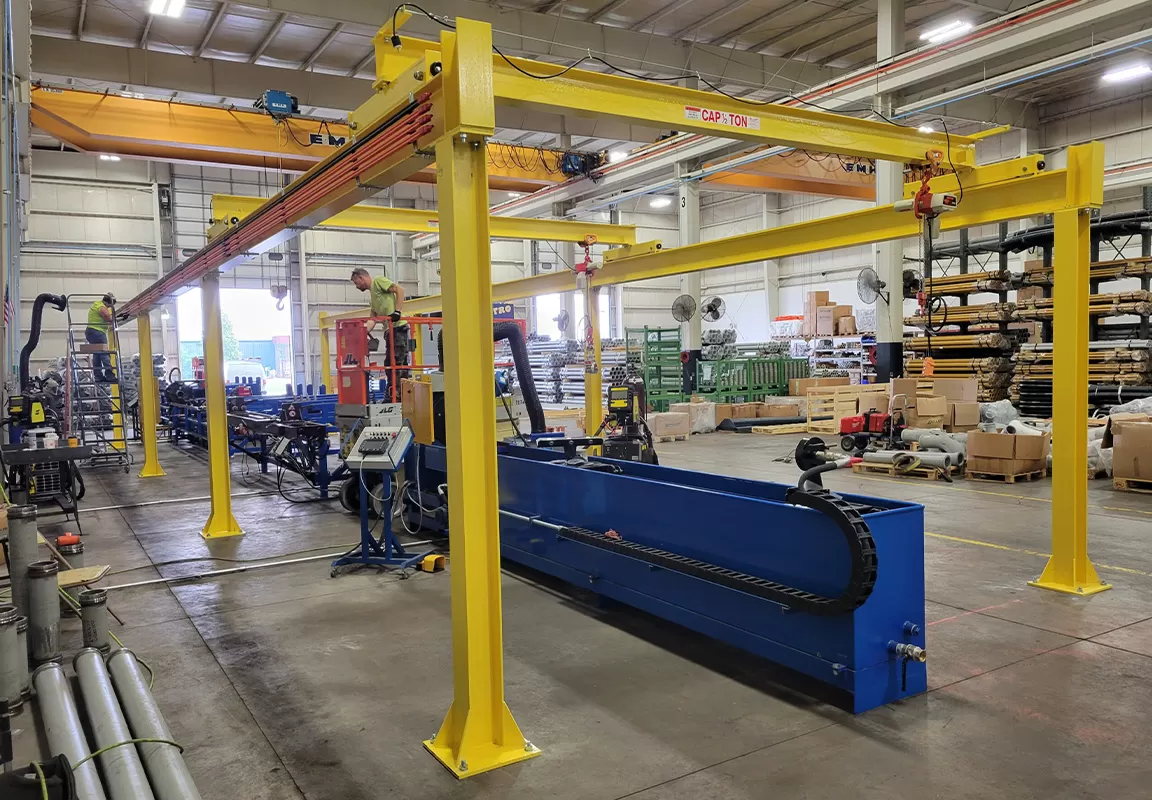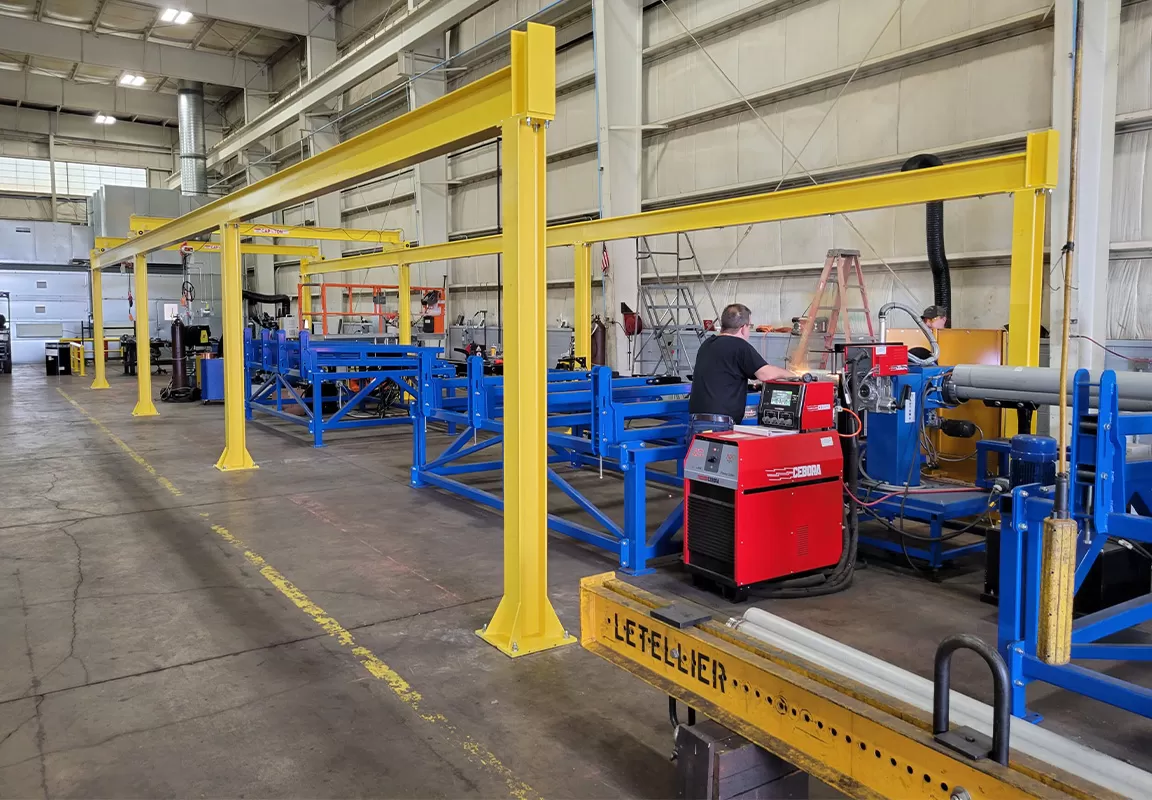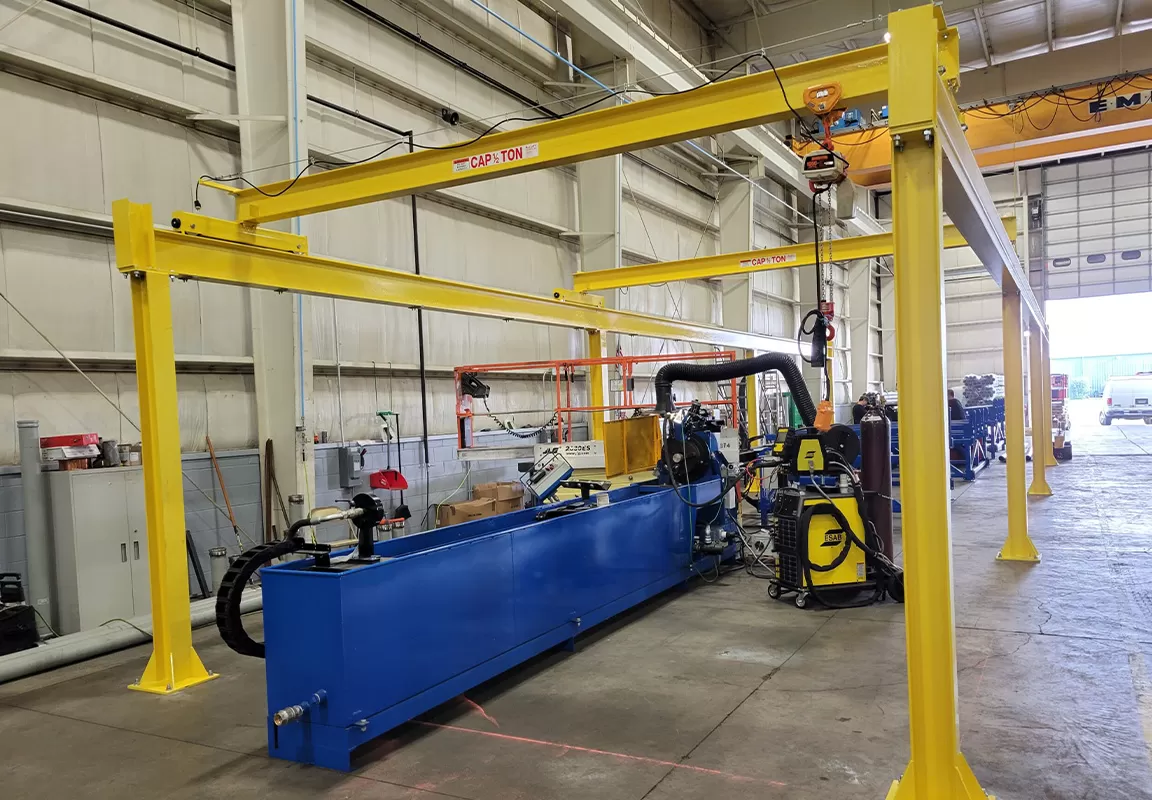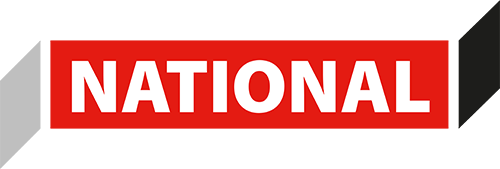Material hoists and cranes are mechanical devices used to lift and lower materials and equipment vertically and horizontally within buildings. They facilitate efficient transportation of heavy loads, enhancing productivity and safety by reducing the need for manual or fork truck handling. Cranes enable a hoist to be moved in any direction to facilitate lifting, moving, and positioning heavy objects horizontally and vertically. Contact our US warehouse solutions company to learn more.
Types of Material Hoists & Cranes
- Chain Hoists
- Cable Hoists
- Floor-Mounted Cranes
- Foundationless Cranes
- Articulating Cranes
- Portable Cranes
- Wall-Mounted Cranes
- Gantry Cranes
- Fork Truck Attachments
- Spreader Beams
- Work Cell Cranes
- Bridge Cranes
- Monorails
- Jib Cranes
- Davit Cranes
Hoist & Crane Sizes
General size ranges and the specific size of a material hoist or crane will depend on factors such as the manufacturer’s specifications, the intended application, the weight of the loads being handled, and the available space in the operating environment.
Hoist & Crane Applications

-
Manufacturing
Cranes are used in manufacturing facilities to move raw materials, finished products, and heavy machinery within the production area. are commonly used for these purposes.
-
Warehousing and Distribution
Cranes facilitate the efficient movement of goods within warehouses and distribution centers. Stacker cranes automate the process of retrieving and storing palletized goods in high-rack storage systems.
-
Energy and Utilities
Cranes are used in power plants and utilities for maintenance, repairs, and installation of equipment like generators, turbines, and transmission lines.
-
Aerospace and Automotive
Cranes are employed in aerospace and automotive industries for assembling large components, engines, and vehicles.
-
Entertainment Industry
are used in the entertainment industry for setting up stages, lighting rigs, and props for concerts, events, and film production.
Industries That Use Material Hoists & Cranes
- Manufacturing
- Distribution
- Warehousing
- Medical
- Automotive Manufacturing
- Production
- Injection Molding
- Retail
- Government/Military
- Pharmaceutical
- Schools/Universities
- Property Management
- Food Processing
Material Hoist & Crane Features
- Lifting Capacity
- Lifting Height
- Safety Features
- Control Systems
- Speed Control
- Weather Resistance
- Maneuverability
- Boom Length and Configuration
- Power Source
- Telescoping Booms
- Automation
- Interchangeable Attachments
- Wireless Control
Material Hoist & Crane Benefits

-
Efficient Material Handling
Material hoists streamline the transportation of materials, reducing the need for manual labor or fork trucks and speeding up material handling processes.
-
Reduced Labor Costs
Overhead lifting, lowering, and horizontal movement of materials allow hoists and cranes to minimize the reliance on manual labor, leading to cost savings over time.
-
Enhanced Safety
Hoists and cranes prevent hands-on interaction with heavy loads, allowing workers to safely transport loads while standing safely away from the load.
-
Time and Labor Savings
Material hoists enable faster vertical transport of materials, resulting in shorter project duration and quicker completion time. Cranes expedite material handling tasks, reducing the need for manual labor and significantly saving time on projects.
-
Increased Productivity
With the ability to move larger quantities of materials in less time, hoists contribute to higher productivity levels on job sites.
-
Precise Placement
Hoists allow for accurate placement of materials, reducing the chances of errors or damage during the lifting process.
-
Versatility
Different material hoists can be used for various materials and load sizes, making them versatile solutions for diverse projects. Cranes come in various types and configurations to suit different applications, from construction to manufacturing to maritime industries.
-
Accessibility
Hoists provide access to elevated work areas for materials, increasing the efficiency of relocating heavy loads.
-
Heavy Lifting
Cranes are capable of lifting and moving heavy loads that would be otherwise impossible or extremely difficult to manage manually.
-
Increased Reach and Coverage
Cranes can reach high and distant places, making them essential for tasks requiring vertical and horizontal movement.
-
Reduced Material Damage
Precise control of crane movements ensures that materials are handled gently, reducing the potential for damage.
-
Adaptability
Cranes can be equipped with different attachments to accommodate various tasks, increasing their utility and cost-effectiveness.
-
Remote Operation
Many cranes offer remote control options, allowing operators to have a safe distance from the load during lifting.
-
Improved Site Utilization
Overhead cranes utilize vertical space efficiently, leaving more floor space available for other activities.
-
Long-Term Cost Savings
Despite the initial investment, the increased efficiency, reduced labor costs, and improved project timelines of material hoist use often result in long-term cost savings.
Material Hoist & Crane FAQ

-
Does National Material Handling Offer Light-Duty Cranes for Assembly Work?
Yes, National Material Handling offers work cell cranes that are usually constructed using a low-effort enclosed track.
-
How Do I Know If My Roof Structure Can Support a Crane or Material Hoist?
National Material Handling offers floor-supported crane solutions that utilize columns when the structural capacity is insufficient or cannot be determined.
-
Do I Need a Foundation for My Crane?
To determine whether a foundation is needed, factors such as floor thickness, floor composition, crane reach and capacity need to be considered. National Material Handling experts can help determine the best material hoist or crane for your facility or application.
Request a Quote for Material Hoists
National Material Handling is proud to serve as your trusted US warehouse solutions company. Submit an RFQ today to learn more about our material hoists. Call National Material Handling at (317) 886-0660 or fill out our online contact form to get started.
